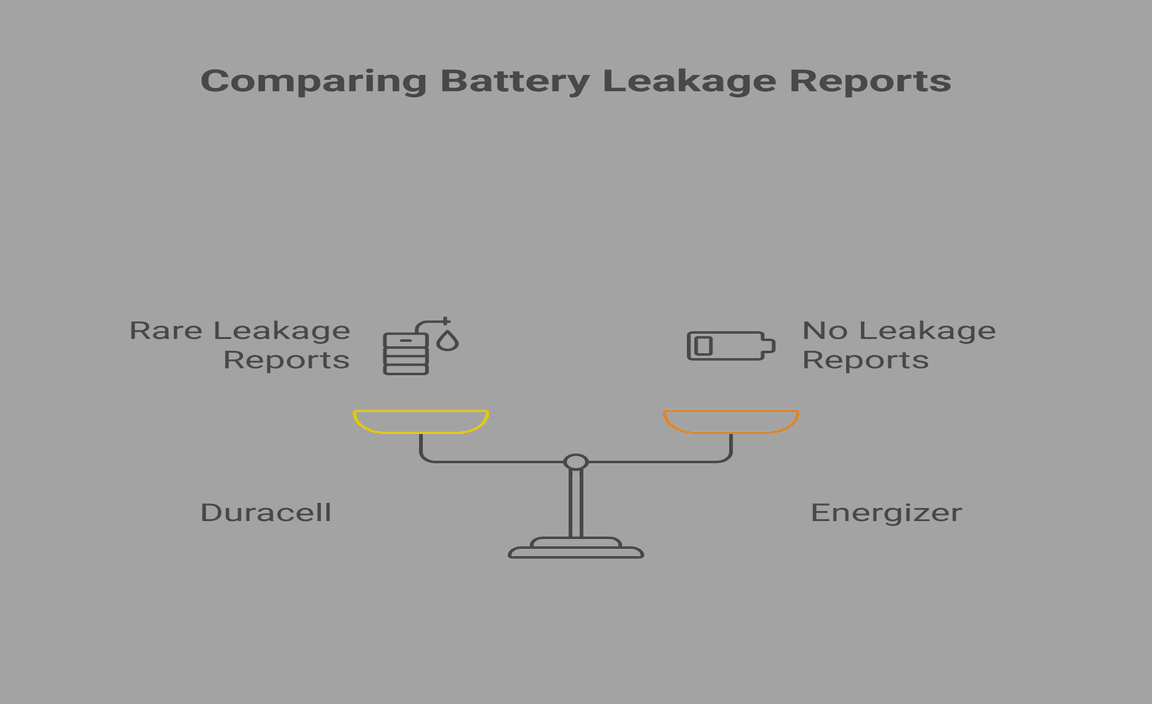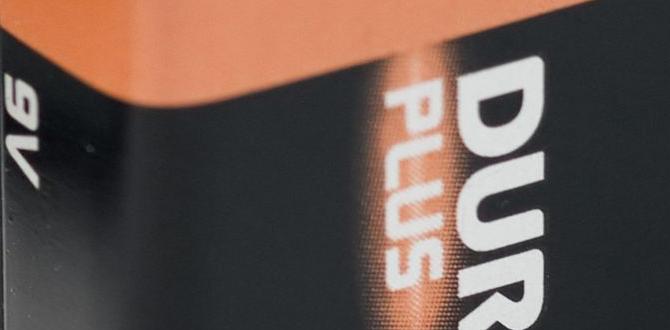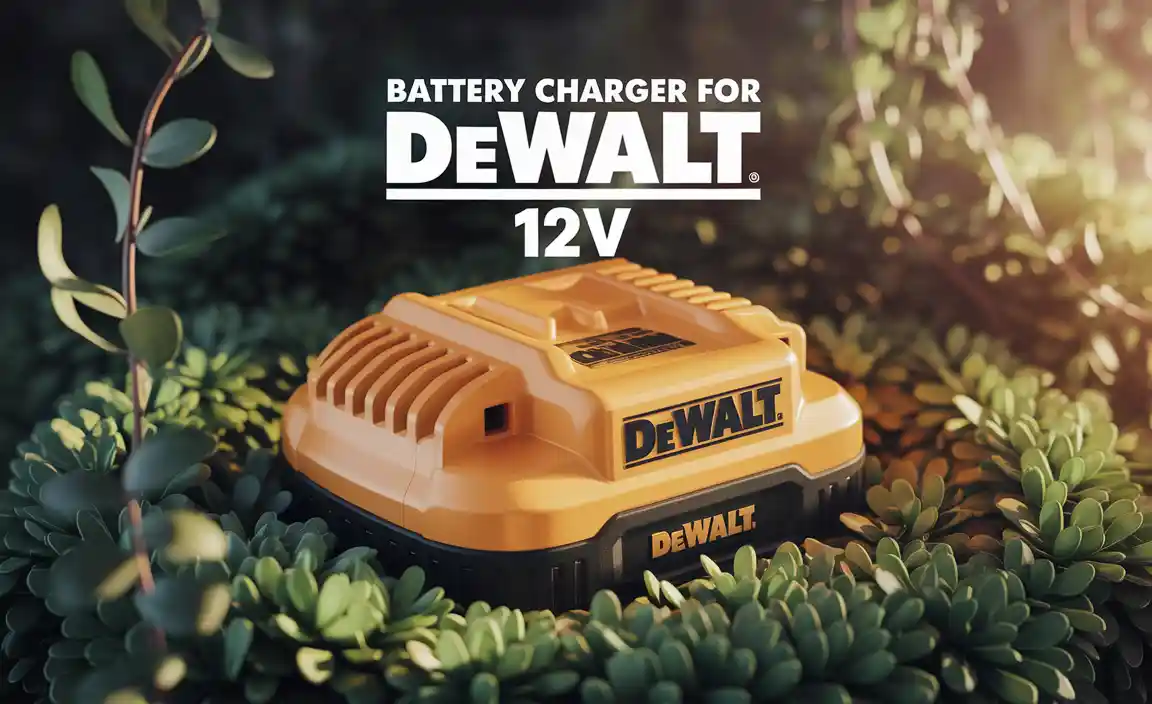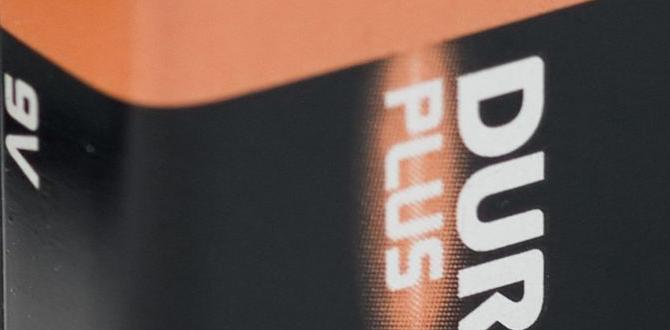Autozone offers store credit or gift cards for used car batteries, typically ranging from $5 to $30, depending on the battery’s condition and local demand. They do not offer cash and prioritize recycling.
—
Is your old car battery just sitting around, and you’re wondering if it’s worth anything? Many people find themselves with a dead car battery and a few questions: Can I get some money back for it? Where can I take it? Understanding the value of your used car battery is a smart move, both for your wallet and for the environment. We’ll break down exactly what Autozone offers for your old battery, making it simple and stress-free.
This guide will walk you through everything you need to know, from what to expect when you bring in your battery to how Autozone handles them. We’ll cover the value, the process, and why it’s beneficial to recycle your car battery. You’ll be confident about what to do with your old power source.
Understanding Autozone’s Battery Recycling Program
Autozone is well-known for its commitment to recycling, especially when it comes to car batteries. Car batteries contain lead and sulfuric acid, which can be harmful to the environment if not disposed of properly. Autozone helps keep these materials out of landfills by processing them responsibly.
When you bring in an old car battery to Autozone, you’re not typically getting cash back. Instead, the value is usually applied as store credit or, in some cases, a gift card. This credit can be used towards the purchase of a new battery or any other items sold at Autozone. It’s their way of incentivizing you to recycle and to shop with them
What Determines the Value of Your Old Battery?
The amount of credit you can expect for your used car battery isn’t a fixed price. Several factors come into play:
- Battery Type and Size: Larger, more powerful batteries often have a slightly higher recycling value.
- Condition: While Autozone accepts dead batteries, a battery that might have some residual charge or isn’t completely corroded might be valued slightly more. However, the primary focus is on the raw materials.
- Local Market Demand: Prices for recycled lead and other materials can fluctuate, which might subtly influence the credit offered in different regions.
- Autozone’s Current Policies: Like any retailer, Autozone’s policies on trade-ins and recycling credits can change.
For the most part, Autozone’s program is designed to encourage recycling rather than provide a significant cash payout. Think of it as a thank you for helping them with their recycling efforts.
How Much Can You Expect? The Autozone Battery Trade-In
So, you’re probably wondering, “How much does Autozone give you for a battery?” As mentioned, it’s not a cash reward but store credit. For a typical passenger car battery, you can generally expect somewhere in the range of $5 to $30 in store credit.
This value is based on the lead content and the cost of recycling. It’s important to manage your expectations: you’re unlikely to get enough credit to cover the cost of a brand-new, high-end battery, but it’s a nice little bonus towards your purchase.
The Process: What to Do When You Bring In Your Battery
Bringing your old battery to Autozone is usually a straightforward process. Here’s what you can expect:
- Locate Your Nearest Autozone: Use their store locator online or just drive by if you know where one is.
- Safely Transport Your Battery: Car batteries are heavy and contain corrosive acid and hydrogen gas. Handle them with care. Use a battery carrier or wear sturdy gloves. Keep it upright to prevent leaks.
- Inform the Staff: When you enter the store, let an associate know you have a used car battery for recycling.
- Verification (if applicable): In some cases, they might ask if the battery came from a vehicle you own or if it’s a new purchase you’re trading in. This is usually to ensure they’re properly managing the battery’s lifecycle.
- Receive Your Credit: The store associate will typically assess the battery and then provide you with store credit or a gift card. This credit is usually applied immediately to any purchase you make that day.
Remember, always handle car batteries with caution. They are heavy and contain hazardous materials. If you’re not comfortable lifting or transporting it, see if a friend or family member can help, or consider professional assistance for removal.
Why Recycling Your Car Battery Matters
Recycling your old car battery is more than just getting a small credit; it’s an environmentally responsible action. Car batteries are among the most recycled consumer products:
- Environmental Protection: Lead and sulfuric acid are toxic. Proper recycling prevents these hazardous materials from contaminating soil and water.
- Resource Conservation: Recycling lead means less need to mine for new lead, which is an energy-intensive process. It’s estimated that about 90% of the lead from old batteries can be reused in new ones.
- Energy Savings: Recycling lead uses significantly less energy than producing new lead from raw ore.
According to the Environmental Protection Agency (EPA), recycling is crucial for managing hazardous waste and conserving natural resources. Facilities that process used batteries ensure that harmful components are neutralized and valuable materials are recovered.
When you drop off your battery at Autozone, you’re contributing to this vital cycle. You’re helping to reduce waste and conserve resources.
Autozone vs. Other Options for Used Batteries
While Autozone is a popular choice, it’s not the only place that accepts used car batteries for recycling. Understanding your options can help you make the best decision:
Local Auto Parts Stores
Many other auto parts chains, similar to Autozone, also offer recycling programs and often provide store credit for used batteries. The value might vary slightly, so it’s worth checking with local stores.
Mechanics and Service Centers
Your local mechanic shop or a car dealership’s service center might accept old batteries. They often have established recycling relationships and might offer similar credit or simply take them for proper disposal.
Scrap Metal Yards
Specialized scrap metal yards that handle automotive or lead scrap will often pay by weight for batteries. This can sometimes offer more direct cash value, but you’ll need to find out which yards accept batteries and what prices they offer. Be cautious and ensure they are licensed and reputable recyclers.
Battery Manufacturers
Some battery manufacturers have their own take-back or recycling programs, often through their authorized dealers or service centers. This is less common for individual consumers but is part of the broader industry’s recycling infrastructure.
Table: Comparing Used Battery Recycling Options
| Option | Typical Payout Method | Estimated Value Range (per battery) | Pros | Cons |
|---|---|---|---|---|
| Autozone | Store Credit / Gift Card | $5 – $30 | Convenient, widely available, easy process. | No cash, value is moderate. |
| Other Auto Parts Stores | Store Credit | $5 – $25 | Similar convenience to Autozone. | Value can vary, may not be cash. |
| Mechanics/Service Centers | Variable (sometimes credit, sometimes disposal fee if not purchased there) | Varies | Often part of a repair service. | May not offer credit unless you’re a customer. |
| Scrap Metal Yards | Cash (by weight) | $10 – $40+ (highly variable) | Potential for higher cash payout. | Requires finding a specialized yard, can be less convenient. |
When comparing, consider what you value most: convenience, immediate cash, or the highest possible monetary return. For most drivers seeking a simple solution and a bit of savings on a new battery, Autozone or a similar auto parts store is usually the best bet.
Safety First: Handling Your Old Car Battery
Car batteries contain lead and sulfuric acid, making them potentially hazardous materials. It’s crucial to handle them with care to avoid injury or damage. Here are some essential safety tips:
- Wear Protective Gear: Always wear safety glasses or goggles to protect your eyes from acid splashes and sturdy gloves to protect your skin.
- Keep it Upright: Carry and store the battery in an upright position to prevent the corrosive acid from leaking out.
- Avoid Sparks and Flames: Batteries can release hydrogen gas, which is flammable. Keep them away from open flames, sparks, or smoking.
- Secure for Transport: If you’re transporting the battery in your vehicle, secure it so it doesn’t tip over or slide around. A battery carrier or a sturdy box can help.
- Clean Up Spills Immediately: If any acid spills, neutralize it with a paste of baking soda and water.
For additional safety guidelines on handling automotive batteries, you can refer to resources from organizations like the U.S. Environmental Protection Agency (EPA), which provides comprehensive information on proper battery disposal and safety.
Frequently Asked Questions About Autozone Battery Trade-Ins
Q1: Does Autozone pay cash for old car batteries?
A1: No, Autozone does not offer cash for used car batteries. They provide store credit or a gift card that can be used towards purchases in their stores.
Q2: How long does the battery credit from Autozone typically last?
A2: Autozone’s store credit or gift cards for battery recycling generally do not have an expiration date, but it’s always a good idea to check the specific terms when you receive it.
Q3: Can I get credit for a motorcycle or other small engine battery?
A3: Autozone typically accepts lead-acid batteries from cars, trucks, and sometimes SUVs. While they have recycling programs for smaller batteries as well, the credit amount and acceptance policy might differ. It’s best to call your local store to confirm for specific types like motorcycle batteries.
Q4: Do I need to buy a new battery at Autozone to get credit for my old one?
A4: Often, the credit is most easily applied when purchasing a new battery. However, Autozone representatives usually provide the credit regardless of whether you are buying a new battery at that moment. It’s good practice to confirm this policy with the store associate.
Q5: What happens to the batteries Autozone collects?
A5: Batteries collected by Autozone are sent to specialized recycling facilities. These facilities safely process the lead, plastic, and acid, recovering valuable materials for use in new products and preventing environmental contamination.
Q6: My battery is badly damaged. Will Autozone still take it?
A6: Autozone generally accepts batteries that are beyond use. However, severely damaged batteries that have leaked all their acid or are in pieces might be subject to inspection. As long as it’s identifiable as a car battery and can be safely handled, they will likely accept it for recycling.
Beyond Car Batteries: Powering Your Devices
While we’ve focused on car batteries, the world of power sources extends to our everyday electronics. Understanding the basics of phone batteries, power banks, and chargers ensures you can keep your gadgets running efficiently and safely. Just like car batteries are essential for your vehicle, these smaller power solutions are vital for our connected lives.
Phone Batteries: The Heart of Your Mobile Device
Most modern smartphones use rechargeable lithium-ion (Li-ion) batteries. These batteries are designed for high energy density, meaning they can store a lot of power in a small package. However, like all batteries, they degrade over time.
Signs your phone battery might be failing include:
- The phone shutting down unexpectedly, even with a reported charge.
- The battery draining much faster than it used to.
- The battery swelling (this is a safety concern – stop using the phone immediately if you notice swelling).
Replacing a phone battery can often be done by the manufacturer or authorized repair shops. For DIY enthusiasts, guides are available, but it’s a delicate process that requires specific tools and caution.
Chargers: The Communication Link
A charger’s job is to safely deliver power from an outlet (or a power bank) to your device’s battery. Using the wrong charger or a faulty charger can damage your battery or device, or even pose a fire risk.
Key things to look for in a charger:
- Matching Output: Ensure the charger’s voltage and amperage (or wattage) are appropriate for your device. Check the device’s manual or the charger itself.
- Certifications: Look for safety certifications like UL, CE, or FCC, indicating the charger has met safety standards.
- Reputable Brands: Stick with well-known brands to ensure quality and safety.
Using cheap, uncertified chargers is a common mistake that can lead to more problems than it solves.
Power Banks: Portable Power on the Go
Power banks are essentially portable batteries that can charge your phone, tablet, and other USB-powered devices when you’re away from an electrical outlet. They are incredibly useful for travel, long days out, or emergencies.
When choosing a power bank, consider:
- Capacity (mAh): Higher milliampere-hour (mAh) ratings mean more charges for your devices. For example, a 10,000 mAh power bank can typically charge a smartphone about 2-3 times.
- Output Ports: Do you need multiple ports? Some power banks have USB-A and USB-C ports, and some support fast charging.
- Size and Weight: For portability, many users prefer compact and lightweight power banks.
Just like your phone battery, power banks will eventually wear out, but good quality ones can last for many years with proper care.
Adapters: The Connectors and Transformers
Adapters are crucial for compatibility. This includes AC adapters for laptops and gaming consoles, or smaller USB adapters that allow you to plug into a car’s lighter port or a wall socket. They convert power from one form to another or provide the correct plug type.
Using the correct adapter is vital. An incompatible adapter won’t work, and in some cases, can cause damage. Always match the adapter’s specifications to the device it’s powering.
Conclusion
Understanding how much Autozone gives you for a battery is about more than just a small credit; it’s about participating in a responsible recycling process. While you won’t get rich from trading in your old car battery, the convenience and the store credit are a nice perk. Autozone provides a straightforward way to dispose of your old battery safely and contribute to environmental conservation.
Remember the estimated $5 to $30 range for store credit, the importance of handling batteries safely, and the broader context of recycling. By choosing to recycle your car battery through Autozone or similar retailers, you’re making a positive impact. Whether you’re managing your car’s power needs or keeping your phone charged on the go, understanding your power sources makes you a more informed and capable consumer. So, the next time your car battery gives out, you know exactly what to do with it and what to expect.




